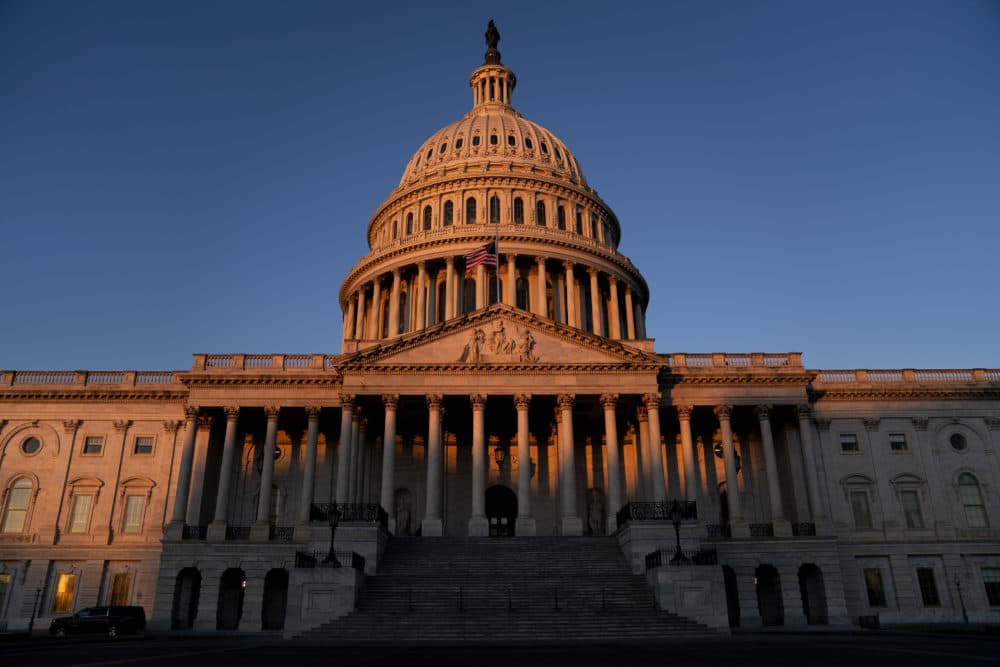Advertisement
All New England States Keep Their Congressional Seats After New Census Numbers Released

No New England states will gain or lose any Congressional seats as a result of the initial 2020 figures announced by the U.S. Census Bureau Monday afternoon.
Redistricting in Massachusetts may be easier than it was after the previous census, when the state lost a seat. But Secretary of State Bill Galvin said at a news conference that challenges remain, including balancing the populations of nine congressional districts.
He noted the state’s residents, likely numbering between 6.8 million and 6.9 million, must be divided evenly. That could mean the 1st and 9th districts — which cover Western Massachusetts and Cape Cod, respectively — may expand geographically because their populations have not kept pace with other parts of the state.
“We also have to make sure we preserve the minority-majority district that's located in Eastern Massachusetts that was constructed after the last census, in 2010,” Galvin said, referring to the 7th District represented by Rep. Ayanna Pressley.
Pressley is the first Black person elected to the House of Representatives from Massachusetts.
Galvin credited immigrants with helping Massachusetts keep its congressional seats and said new district lines should reflect the state's diversity.
Nationally, the long-awaited announcement from the U.S. Census Bureau slightly reset the balance of power for the next decade in the House of Representatives and the Electoral College, where each state's share of votes is tied to its census numbers. Texas gained two seats; Colorado, Florida, Montana, North Carolina and Oregon each gained one seat; and California, Illinois, Michigan, New York, Ohio, Pennsylvania and West Virginia each lost a seat.
Overall, the census counts 331,449,281 people in America, up 7.4% from the last census count of 308,745,538 taken in 2010.
The results have been held up for months due to delays caused by the coronavirus pandemic and the Trump administration's interference last year. Under current federal law, these state population numbers were due by the end of 2020. But the bureau has been warning since last April that census results will be delivered later than originally planned. A bipartisan group of lawmakers recently renewed a push in Congress to formally extend legal reporting deadlines for the 2020 count.
Based on the bureau's estimates, the latest tally is likely to show that the growth in the number of people living in the U.S. has slowed to the lowest rate the country has seen since the 1940 census was conducted in the wake of the Great Depression. Disruptions from COVID-19 during last year's counting, however, have made shifts in each state's population particularly hard to predict.
Last year's tally was the country's 24th census — a once-a-decade tradition required by the Constitution since 1790 — and it is the ninth count for which the U.S. government has attempted to include every person living in the country in the numbers used for reapportioning seats in Congress. Before the 1940 census, the phrase "excluding Indians not taxed" in the Constitution excluded some American Indians from the apportionment counts.
The Census plans to release more detailed numbers for legislative and congressional redistricting by the end of September, a later date than usual that will force Massachusetts and other states to scramble to examine district lines.
Massachusetts Secretary of State William Galvin plans to meet with reporters after the federal announcement at 3 p.m.
With additional reporting from NPR's Hansi Lo Wang and State House News Service's Michael P. Norton
This article was originally published on April 26, 2021.